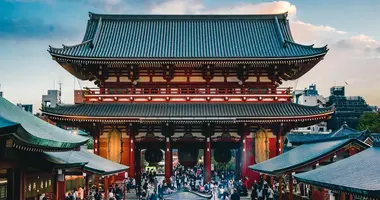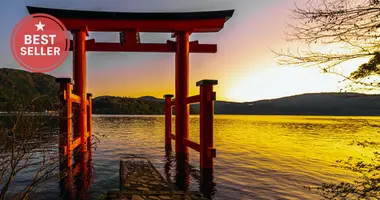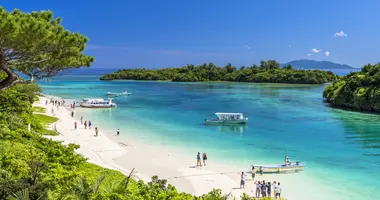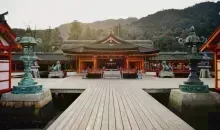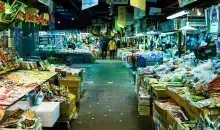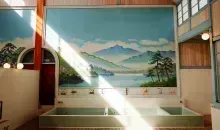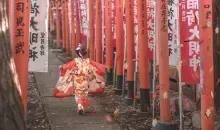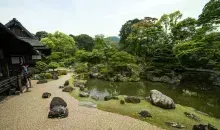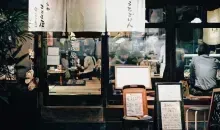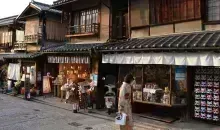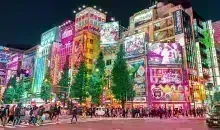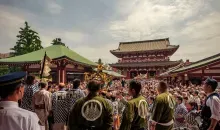Gay Shinjuku: Exploring Tokyo's vibrant LGBTQ+ hub
- Published on : 25/03/2024
- by : Japan Experience
- Youtube

Nakadori Avenue, the main street of gay Shinjuku Ni-chome, Tokyo
Nestled in the heart of Tokyo, Shinjuku Ni-chōme stands as a testament to Japan's thriving LGBTQ+ scene. This vibrant neighborhood, often simply called Ni-chōme, is renowned for having the world's highest concentration of gay bars. With its narrow streets lined with colorful establishments, Ni-chōme offers a unique blend of culture, nightlife, and community that attracts both locals and tourists alike. From cozy cafes to pulsating nightclubs, Ni-chōme caters to every taste within the LGBTQ+ spectrum. Whether you're a first-time visitor or a seasoned regular, Gay Shinjuku promises an unforgettable experience in Tokyo's most diverse and accepting district.
Introduction to Shinjuku Ni-chōme: Tokyo's gay district
Shinjuku Ni-chōme, often referred to as simply Ni-chōme or Nichō, is Area 2 in the Shinjuku District of Tokyo. This small yet lively neighborhood is the epicenter of Japan's gay subculture, boasting an estimated 300 gay bars and nightclubs within just five blocks. Located within walking distance from Shinjuku Station, the world's busiest train station, Ni-chōme is easily accessible and a must-visit destination for LGBTQ+ travelers and allies.
The area offers a diverse range of establishments, including bars, restaurants, cafes, saunas, love hotels, gay pride boutiques, and even cruising spots known as hattenba. This concentration of LGBTQ+-friendly venues creates a safe and welcoming environment for the community to express themselves freely. Ni-chōme's unique atmosphere is characterized by its bustling energy, colorful signage, and the warm camaraderie among patrons and staff alike.

Rainbow Flag at Gapan Cafe, Shinjuku 2-Chome, Tokyo
History and evolution of Shinjuku's gay scene
The history of Ni-chōme as a gay neighborhood dates back to the American Occupation of Japan (1945-1952). As early as 1948, there are mentions of a gay tea shop in Shinjuku, and by the 1950s, gay bars began to emerge publicly in the area. The transformation of Ni-chōme into a gay district is closely tied to the fall of Tokyo's red-light districts following the passage of the Prostitution Prevention Law in 1956.
As the traditional sex industry left Ni-chōme, a gay subculture began to fill its place. By the late 1950s, Ni-chōme was known for its popularity in the gay community, and a vibrant club scene started to emerge. Over the years, the district has witnessed significant milestones in Japan's LGBTQ+ history, including:
- The establishment of a counseling room for young gay men in 1976
- The first AIDS candlelight vigil in 1986
- The inauguration of Tokyo's annual International Lesbian and Gay Film Festival in 1992
- Japan's first lesbian and gay pride parade in 1994
- The founding of Japan's first gay community center, AKTA
Today, Shinjuku Ni-chōme continues to be a hub for LGBTQ+ culture and activism in Japan, despite facing challenges such as gentrification and the rise of online dating platforms.

Elegant greenery-covered Bikitan bar at left, with gay bars behind, Shinjuku 2-chome, Tokyo.
Navigating the diverse bar and club scene in Ni-chōme
Ni-chōme's bar and club scene is remarkably diverse, catering to various subsets of the LGBTQ+ community. Most establishments are small, typically seating fewer than a dozen customers, which creates an intimate atmosphere. The scene is highly specialized, with bars catering to specific preferences and identities within the community. You'll find venues that cater to the bear community, BDSM enthusiasts, muscular men, young crowds, and specific lesbian subcultures.
When exploring Ni-chōme, keep in mind that many bars operate on a "scene" basis. Club owners, often called "masters" or "mama-sans," curate their clientele carefully. Some venues may charge different entrance fees based on gender or appearance to maintain their desired atmosphere. While this practice may seem exclusionary, it's part of the unique culture of Ni-chōme that allows for highly specialized spaces.
For first-time visitors, especially non-Japanese speakers, it's recommended to start with more foreigner-friendly establishments. Some popular options include:
- Dragon Men: A spacious bar with a dance floor, popular among both locals and tourists
- Arty Farty: A lively club known for its diverse crowd and dance-friendly atmosphere
- AiiRO Cafe: An open-air bar perfect for people-watching and making new friends

AiiRO Cafe, a gay bar in Shinjuku Ni-Chome, Tokyo
Popular LGBTQ+ venues and events in Shinjuku
Shinjuku Ni-chōme offers a wide array of venues catering to different tastes within the LGBTQ+ community. Some of the most popular establishments include:
- GB: Known for its friendly staff and generous drinks, GB is often full and offers a lively atmosphere
- Campy Bar: A fun, flirty place run by a celebrity drag queen, popular among both LGBTQ+ individuals and allies
- Annex: A club with more headroom and a slightly more macho crowd, perfect for those who want to drink and dance without feeling overcrowded
In addition to these year-round venues, Ni-chōme hosts several notable LGBTQ+ events throughout the year:
- Tokyo Rainbow Pride: Held annually in April or May, this is the largest LGBTQ+ event in Japan, featuring a parade and festival
- Rainbow Reel Tokyo: An LGBTQ+ film festival that has been running since 1992
- Regular themed parties at venues like AiSOTOPE Lounge, catering to different subcultures within the community

Campy! Bar, run by a drag queen, on Naka-dori Avenue, Shinjuku Ni-chome
Dining options in and around Shinjuku Ni-chōme
While Ni-chōme is primarily known for its nightlife, the area also offers a variety of dining options for those looking to grab a bite before or after their night out. Some popular choices include:
- Uoya Itcho: Located in the Bygs Building on block 'C' of the gay Shinjuku map, this izakaya offers excellent Japanese cuisine at reasonable prices
- CoCoLo Cafe: An LGBTQ+-friendly establishment serving a variety of teas, coffees, and substantial meals
- Rainbow Burrito: A small, gay-owned Mexican-style eatery known for its California-style burritos
- Alamas Café: Owned by the same group as AiSOTOPE Lounge, this café offers affordable meals and a trendy atmosphere
For late-night cravings, there's a raamen (Chinese noodle) shop across from the Bygs Building, and a 24-hour Freshness Burger branch nearby that's known to be gay-friendly.

Gay-friendly Cocolo Cafe, Shinjuku 2-chome, Tokyo
Tips for visitors to Shinjuku's gay neighborhood
When visiting Shinjuku Ni-chōme, keep these tips in mind for a safe and enjoyable experience:
- Respect local customs: While Ni-chōme is more open than other parts of Tokyo, public displays of affection are still uncommon in Japan
- Learn basic Japanese phrases: While some venues cater to English-speaking tourists, knowing a few key phrases can enhance your experience
- Be aware of cover charges: Many bars have a cover charge or require the purchase of at least one drink
- Use caution with photography: Always ask permission before taking photos, as some patrons may prefer to maintain their privacy
- Stay safe: While Ni-chōme is generally safe, be aware of your surroundings, especially late at night
- Check event calendars: Look for special events or themed nights that might interest you
- Explore during different times: The atmosphere can vary greatly between day and night, weekdays and weekends
Cultural significance and challenges facing Shinjuku's LGBTQ+ community
Shinjuku Ni-chōme holds immense cultural significance for Japan's LGBTQ+ community. It serves as a safe haven where individuals can express their identities freely, something that's not always possible in other parts of Japanese society. The district has played a crucial role in the visibility and acceptance of LGBTQ+ individuals in Japan, acting as a catalyst for social change and advocacy.
However, the community still faces several challenges:
- Legal recognition: Japan still lacks national recognition of same-sex partnerships, though some municipalities have introduced partnership systems
- Social stigma: Despite progress, LGBTQ+ individuals may face discrimination in workplaces, schools, and even families
- Gentrification: Rising property values in Shinjuku have led to the closure of some long-standing LGBTQ+ establishments
- Aging population: Many bars cater to specific age groups, potentially excluding older LGBTQ+ individuals
- Online dating: The rise of dating apps has impacted the traditional bar scene
Despite these challenges, Shinjuku Ni-chōme remains a vibrant and essential part of Tokyo's LGBTQ+ landscape. It continues to evolve, adapting to changing social norms and technology while maintaining its role as a crucial space for community, advocacy, and celebration of LGBTQ+ identity in Japan.












